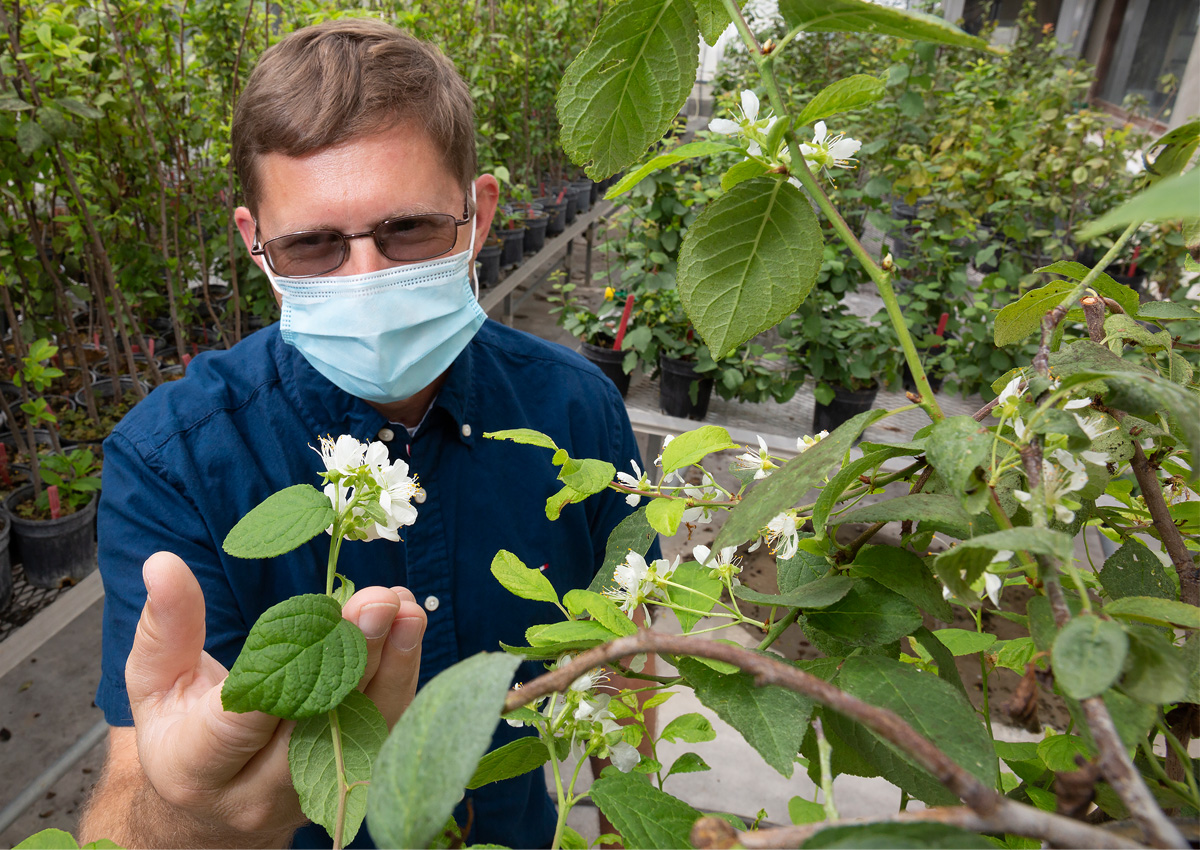
USDA ARS Scientists Genetically Engineer Ever-Flowering Fruit to Feed Astronauts
November 3, 2021| |
Scientists at the U.S. Department of Agriculture's Agricultural Research Service (ARS) have worked with NASA to develop a continuous flowering plum plant to help astronauts maintain healthy diets during those extended voyages.
According to Chris Dardick, lead scientist and plant molecular biologist at the ARS Appalachian Fruit Research Station, most fruits that are key components of our diet, such as apples, pears, peaches, cherries, grapes, plums, raspberries, oranges, and bananas grow on trees or vines that take years to grow. These fruit trees also require long periods of cold annually to flower and renew their growth.
Dardick's team borrowed an idea from a common backyard garden staple, the tomato. Their team genetically engineered plum trees to continually flower and produce fruit like a tomato plant. They over-expressed a key flowering regulator gene that causes the plum trees to flower all the time, eliminating the need for cold dormancy. This technology does not only offer the potential to grow fruit on long-duration space missions, it could also be used on Earth in indoor or urban farms.
For more details, read the article on the USDA ARS website.
| |
You might also like:
- GE Cotton Goes to the International Space Station
- Bacterial Strains Isolated in International Space Station Could Help Grow Plants in Mars
- Scientists Identify Biotech Techniques to Improve Space Agriculture
Biotech Updates is a weekly newsletter of ISAAA, a not-for-profit organization. It is distributed for free to over 22,000 subscribers worldwide to inform them about the key developments in biosciences, especially in biotechnology. Your support will help us in our mission to feed the world with knowledge. You can help by donating as little as $10.
-
See more articles:
-
News from Around the World
- Global Climate Change Impact on Maize and Wheat Expected Within 10 Years, NASA Study Finds
- OFAB-Kenya Fetes Top Journalists in Science Media Awards
- USDA ARS Scientists Genetically Engineer Ever-Flowering Fruit to Feed Astronauts
- Study Confirms Effectiveness of Transgenic Coffee Against CBB
- Researchers Uncover "Genetic Goldmine" Allowing Plants to Live in Extreme Environment in the Atacama Desert
- Filipino Farmers Disagree on Banning of Biotech Crops
- 4th Asian Short Course on Agri-biotech, Biosafety Regulation, and Communication (ASCA2021)
- Food Futures: Commercialization of Gene Edited Crops in Asia and Australia
- Scientists Discover How Legumes Give Oxygen to Symbiotic Bacteria in their Roots
- European Scientists Call For Better Legislation on Genome-Edited Crops
-
Plant
- Researchers Venture into Gene Editing Research to Produce Improved Strawberries
- Heat-Moisture Treatment Improves Starch Content of Healthy Rice
-
Read the latest: - Biotech Updates (November 12, 2025)
- Gene Editing Supplement (October 29, 2025)
- Gene Drive Supplement (February 22, 2023)
-
Subscribe to BU: - Share
- Tweet

